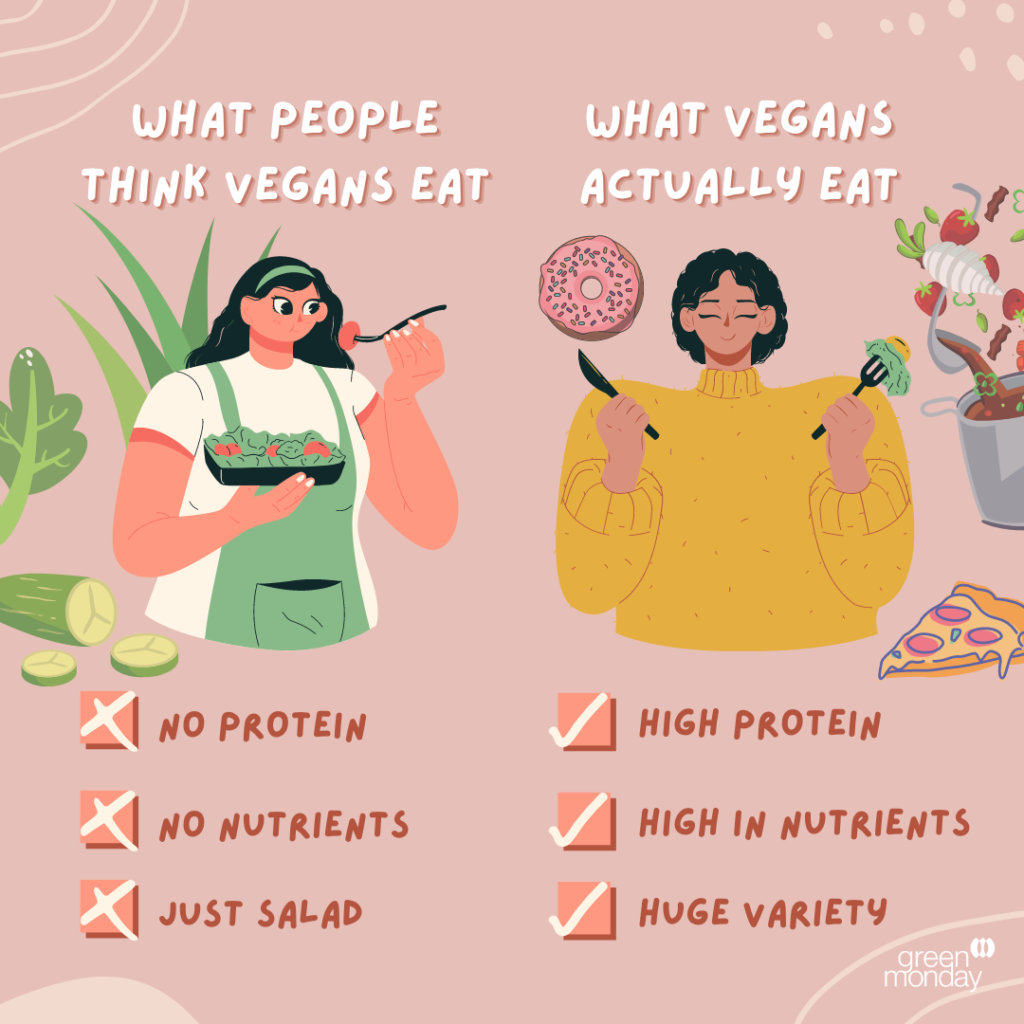All About Veganism and Going Vegan

Plant based and vegan foods have seen an exponential growth and have become a lifestyle for many in the Western World. The shift in this global paradigm is due to an increased awareness on the environmental impact of traditional animal agriculture. As concerns over climate change and resource depletion become more urgent, many are recognizing that the meat and dairy industry is a major contributor to greenhouse gas emissions, deforestation, and water scarcity.

Therefore, consumers are increasingly seeking alternatives that tread more lightly on the planet. Plant-based diets, rich in fruits, vegetables, legumes, and grains, have a significantly lower carbon footprint, making them an attractive choice for environmentally conscious individuals. Health considerations have also played a pivotal role in propelling these diets.
However, many out there are not quite sure what a vegan diet is. On this week’s posting, we cover all about vegan diets, the types of vegan and the differences between a vegan and a vegetarian diet.
1. What is the difference between vegan and vegetarian?

•A vegetarian does not eat any animal flesh such as meat, poultry, or fish.
•A vegan avoids all that the vegetarian avoids including consuming dairy, eggs, and any other ingredients derived from animals.
2. Types of Vegans
Here a few categories of vegan diet:

3. What are the foods that vegans eat?

Avoiding animal products doesn’t restrict one to eating salads and tofu alone.
There are a wide variety of delicious foods you can eat on a vegan diet.
•Beans, peas, and lentils:
•Soy products
•Nuts and nut butter
•Seeds
•Whole grains
•Starchy vegetables
•Non-starchy vegetables
•Fruit
•Other plant-based foods: such as algae, nutritional yeast, fortified plant milks and yogurts, and maple syrup.
There’s a good chance that many of the dishes you currently enjoy either already are vegan or can be made vegan with a few simple adjustments. You can also choose from the ever-growing selection of ready-made vegan products, including vegan meats, vegan cheeses, and vegan desserts.
Just keep in mind that these may be highly processed. So while they are fine to eat in moderation, they should not make up the bulk of a healthy vegan diet.
4. What are the foods that vegans avoid?
•Vegans avoid all foods of animal origin. These include:
•Meat, poultry and fish
•Eggs
•Dairy
•Other animal-derived ingredients: such as honey, albumin, casein, carmine, gelatin, pepsin, shellac, isinglass, and whey

Checking food labels is generally the best way to determine whether a food contains animal-based products. Many vegan foods are now also labeled well making it easier to recognize them when you’re shopping.
5. What are the nutrition & health benefits of being vegan?

•With the exception of vitamin B12, which comes mainly from animal foods like meat or eggs, a vegan diet can cover most of an individual’s nutritional needs.
•However, it takes some planning to get enough of certain nutrients like vitamin D, calcium, zinc, and iron. Alternatively, supplements are recommended.
Below are some tips to get complete nutrition from your vegan diet:

References:
1. Better Health Channel: Vegetarian and Vegan eating
2. NHS. The Vegan Diet







